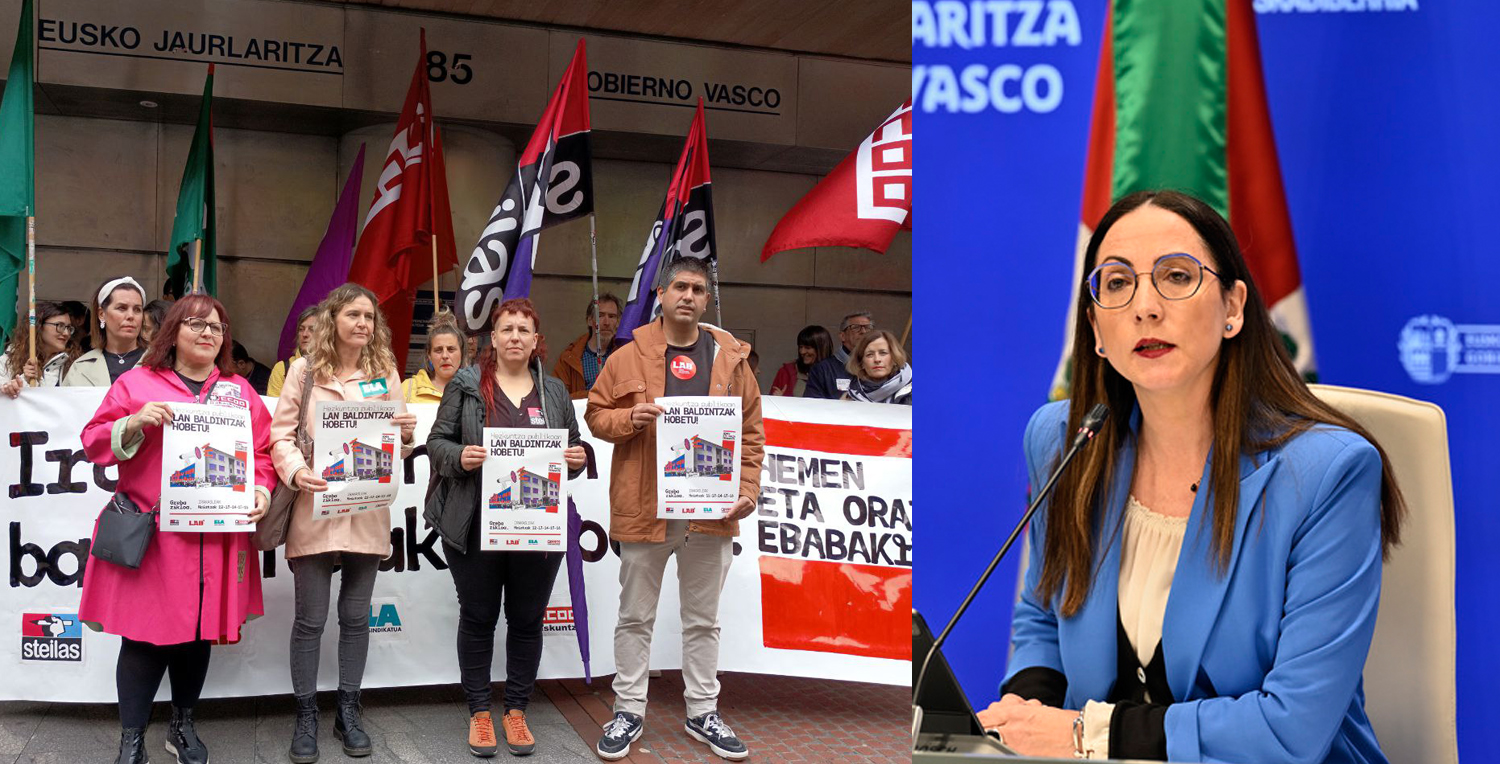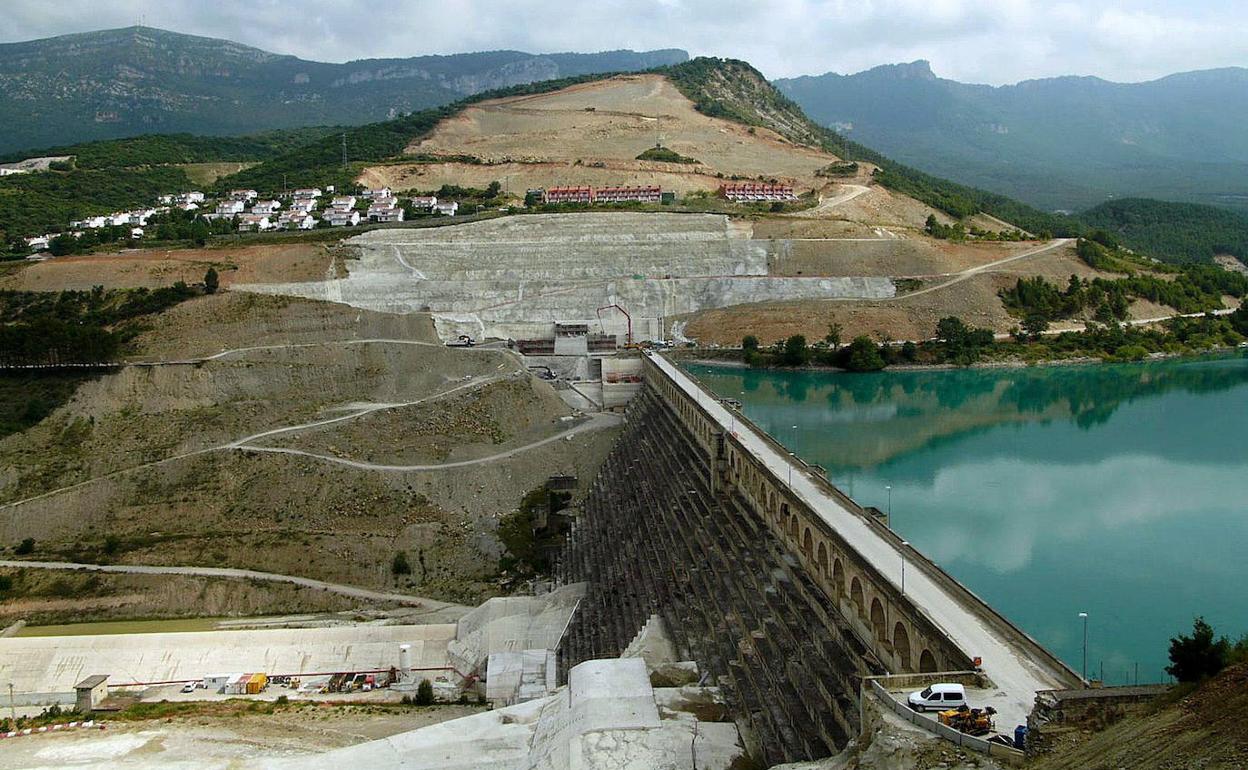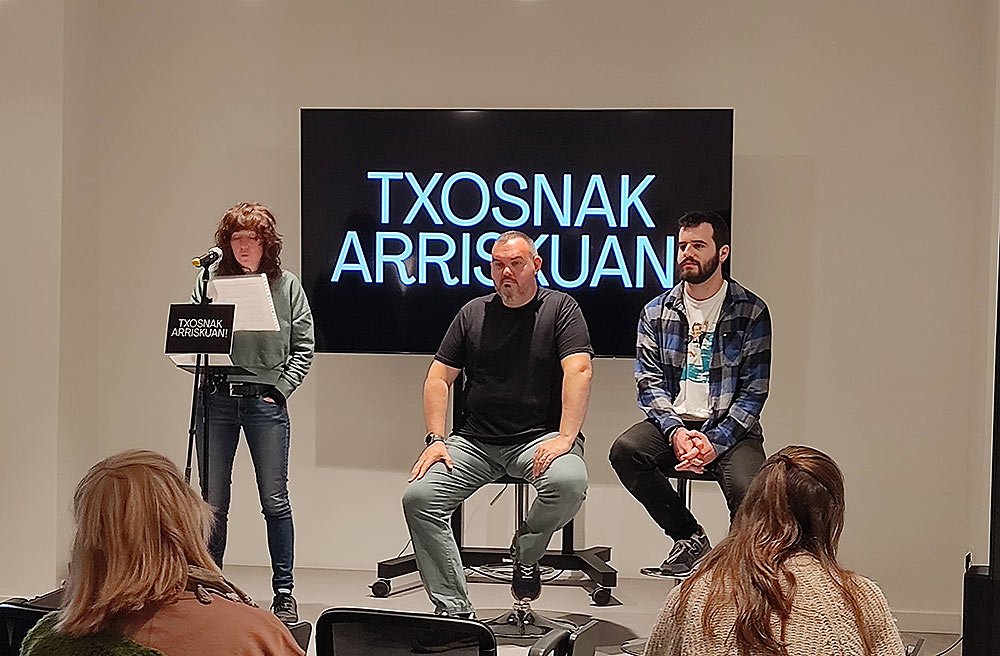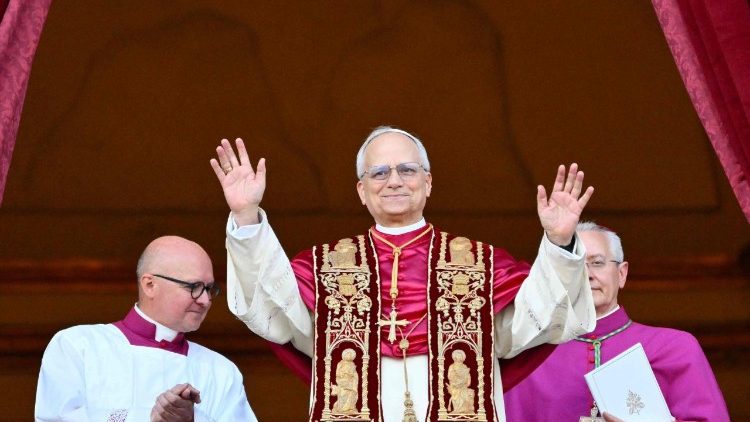Society
Environment
Politics
Economy
Culture
Basque language
Feminism
Education
International
Opinion
sunday 11 may 2025
Automatically translated from Basque, translation may contain errors. More information here. 
Not everything is mathematics
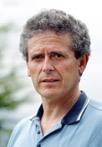
Dani Blanco
I read what the leader of an Oceanian tribe said about Europeans in his original book The Papalaggi: “They count days, months and years and when they reach the age of several years they start with the fact that it is their turn to die soon and the fears in the air that they do not know how to avoid death.” I think he was right.
We count and value life over the years and not with what we have done or what we have left. Everything is quantity in our minds. All measurable in meters if not in kilos or diopters. And how can we measure the love we have given? Or the warmth? And the storb we've made? Is there a unit to measure them?
Of course, it is easier to measure what we can lose, both in the banks and in the coffers, because of the economic crisis, and we are in a hurry, isn’t it the same as always? Isn't it the job of these homes to make great profits by using our money? What is worse is that even when they have losses, they waste our money – by government decision and authorization – to get out of the hole, leaving us in the hole again. When a humble citizen suffers economic bankruptcy, why don't we help everyone's money and the bankers do? Why don't we leave our money to help our friends? Because we don't trust each other, do we trust the banks? When we don't know what they're going to use it for?
The economy has failed and should we be sad or happy? Are the principles of the current system fair? Is it normal to increase profits every year while the poor are multiplying? And is it normal for these profits to be proudly presented at shareholders’ meetings and reported in the media? Where is the solidarity? They say that money has no heart, even if it were a person! Money doesn’t need a heart to live but those who manage it? Neither does it seem.
That’s how we get used to it. Since we only care about what can be measured and the measure of our own always subsides... what do we do to live happily? Even leisure activities don't help us. For example, cyclists seem to be as competitive as professionals. Those of us who are mountaineers want to set foot on the summit – who does not know that there are fourteen octaves in the world? And that Edurne Pasaban has raised eleven–. But since when is the mountain all the way to the top, do we not know how to walk on the mountain? No, we also have mathematics in mind in the mountains, and we consider it a goal, to achieve the same result as the others: the summit. Mark and enjoy the route we want without even thinking about it, and if you ever prove that this is the case, you will stay in the hope that you have come to the mountain but not to the mountain. Habits are hard to change.
And so it is in almost everything; as in sports in studies and in food and love. We have also turned love into mathematics: 22 days
so many pills; 50 years and the solution to menopause; two or three times in the skins and the fact that young people use biagra
more than older people –Xux’s concealer has put the hinge on me. It’s better if I do! – and also not skinny – again on Xux, this time I’ve had an emergency! – just one, how much? We become famous among friends as hunters “throw one and say three.” It’s all about number, and often just number.
But life, above all, is philosophy. There is not one and the same result for everyone in any performance, even if we have the best teacher as our guide. One must seek and find one’s own result and conformity. The last one, of course.
It would be better if we put the interest in the bank and not wait for the interest that the bank can give us. I was talking about the park bench, of course! At least there we would deepen a friendly interest and not one that has no heart.
Interest, rent, capital, speed, valves, horses, years, runs... but without friendship, without love, without real friends, what?
What luck is there for those who are not born in this world! A friend of ours says so.
We count and value life over the years and not with what we have done or what we have left. Everything is quantity in our minds. All measurable in meters if not in kilos or diopters. And how can we measure the love we have given? Or the warmth? And the storb we've made? Is there a unit to measure them?
Of course, it is easier to measure what we can lose, both in the banks and in the coffers, because of the economic crisis, and we are in a hurry, isn’t it the same as always? Isn't it the job of these homes to make great profits by using our money? What is worse is that even when they have losses, they waste our money – by government decision and authorization – to get out of the hole, leaving us in the hole again. When a humble citizen suffers economic bankruptcy, why don't we help everyone's money and the bankers do? Why don't we leave our money to help our friends? Because we don't trust each other, do we trust the banks? When we don't know what they're going to use it for?
The economy has failed and should we be sad or happy? Are the principles of the current system fair? Is it normal to increase profits every year while the poor are multiplying? And is it normal for these profits to be proudly presented at shareholders’ meetings and reported in the media? Where is the solidarity? They say that money has no heart, even if it were a person! Money doesn’t need a heart to live but those who manage it? Neither does it seem.
That’s how we get used to it. Since we only care about what can be measured and the measure of our own always subsides... what do we do to live happily? Even leisure activities don't help us. For example, cyclists seem to be as competitive as professionals. Those of us who are mountaineers want to set foot on the summit – who does not know that there are fourteen octaves in the world? And that Edurne Pasaban has raised eleven–. But since when is the mountain all the way to the top, do we not know how to walk on the mountain? No, we also have mathematics in mind in the mountains, and we consider it a goal, to achieve the same result as the others: the summit. Mark and enjoy the route we want without even thinking about it, and if you ever prove that this is the case, you will stay in the hope that you have come to the mountain but not to the mountain. Habits are hard to change.
And so it is in almost everything; as in sports in studies and in food and love. We have also turned love into mathematics: 22 days
so many pills; 50 years and the solution to menopause; two or three times in the skins and the fact that young people use biagra
more than older people –Xux’s concealer has put the hinge on me. It’s better if I do! – and also not skinny – again on Xux, this time I’ve had an emergency! – just one, how much? We become famous among friends as hunters “throw one and say three.” It’s all about number, and often just number.
But life, above all, is philosophy. There is not one and the same result for everyone in any performance, even if we have the best teacher as our guide. One must seek and find one’s own result and conformity. The last one, of course.
It would be better if we put the interest in the bank and not wait for the interest that the bank can give us. I was talking about the park bench, of course! At least there we would deepen a friendly interest and not one that has no heart.
Interest, rent, capital, speed, valves, horses, years, runs... but without friendship, without love, without real friends, what?
What luck is there for those who are not born in this world! A friend of ours says so.
Most read
Using Matomo
#1
Mikel Garcia Idiakez
#2
Lurraren Defentsan Euskal Herria Bizirik
#3
#5
Iñigo Satrustegi
Newest
2025-05-10
Mikel Garcia Idiakez
Public education teachers reach agreement with the government
At the end of the tense academic year, all trade unions except ELA have signed an agreement with the Basque Government during the last negotiation marathon, which began on Thursday and continued on Friday. The strikes next week have been cancelled. What they have agreed and what... [+]
2025-05-09
Olaia L. Garaialde
Tools to accompany nutrition during menopause
Andrea Velasko, a dietitian and nutritionist, has provided some keys to managing the changes caused by menopause through nutrition.
2025-05-09
Uxue Gutierrez Lorenzo
A well-sown harvest
BRN + Neighborhood and Sain Mountain + Odei + Monsieur le crepe and Muxker
What: The harvest party.
When: May 2nd.
In which: In the Bilborock Room.
---------------------------------------------------------
The seeds sown need water, light and time to germinate. Nature has... [+]
2025-05-09
Euskalerria irratia
On May 18th they will celebrate the Feast of Creation in Takonera
After a six-year hiatus, on May 18, the Surge party will be held in Takonera to support Model D public schools. There will be shows, games for children and concerts by Gorka Urbizu and/or Borla.
2025-05-09
Idoia Rodriguez Mondragon
It's for your benefit.
Seeing how many psychologists, doctors, therapists... share miraculous methods, one can think that the education of children is an international concern and that we have all become experts.
2025-05-09
Xabier Letona Biteri
47 million euros more was "safe" to guarantee the safety of the Esa reservoir
The President of the Ebro Hydrographic Confederation (CHE) made the announcement at the beginning of the week: The fourth adaptation of the works for the expansion of the Esa reservoir will be launched this year and 47 million euros will be spent to stabilize the right side of... [+]
2025-05-09
Arabako Alea
Vitoria-Gasteiz gardeners meet with the city council for the first time
The City Council of Vitoria-Gasteiz said the company is calling for negotiations. The unions have asked him to defend the workers of Vitoria-Gasteiz against the US investment fund that owns Enner.
2025-05-09
Onintza Irureta Azkune
Patxi Saez Beloki Member of ZirHika
“Even doing Hikaz, you learn by doing”
For the first time in the series, there will be a hike. Eighty-three villages have been registered. The initiative is organized by the ZirHika operative group, which was created last year to promote the Hitano, together with Taupa. We interviewed Patxi Saez Beloki, member of... [+]
2025-05-09
Lurraren Defentsan Euskal Herria Bizirik
The solution is not technical, it is social; the answer to Arnaldo Otegi
In recent weeks, the debate on renewable energies has been spreading in the media. In the Basque Country, we first had the media case of the attack suffered by Aritz Ochandiano, whom he attributed to his support for renewable energies; a few days later, the great blackout, and... [+]
2025-05-09
Urko Apaolaza Avila
More places to stay in Turiel: “You can look for technical reasons, but the blackout was caused by the perverse price system”
Antonio Turiel, a physicist and researcher at the CSIC, filled the church of San José el Trabajador in the Florida neighborhood of Hernani on Wednesday in a different way from years ago. Zientoka’s friends came together to listen to his lecture entitled The Limits of the... [+]
2025-05-08
Gorka Peñagarikano Goikoetxea
The American Robert Prevost will be the new pope, Leo XIV
He will be the 267th pope of the Catholic Church. The conclave lasted only one day.
Eguneraketa berriak daude











